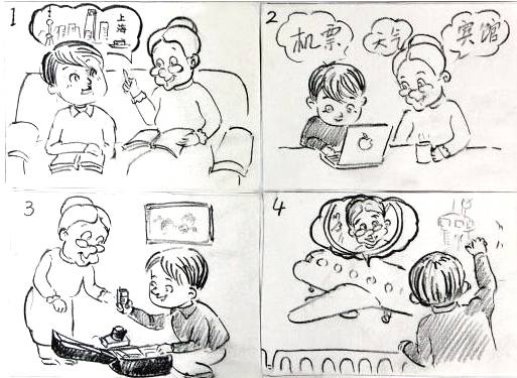题目内容
E
Speaking two languages can actually help offset(抵消) some effects of aging on the brain, a new study has found,
Researchers tested how long it took participants to switch from one cognitive(认知的) task to another, something that-s known to take longer for older adults, said lead researcher, Brian Gold, a neuroscientist at the University of Kentucky.
Gold’s team compared task-switching speeds for younger and older adults, knowing they would find slower speeds in the older population because of previous studies. However, they found that older adults who spoke two languages were able to switch mental activities faster than those didn’t . The study only looked at life long bilinguals(会说两种语言的人) defined in study as people speaking a second language daily since they were at least 10 years old.
Gold and his team asked 30 people, either bilingual or monolingual(只僮一种语言 人) , to have a series of tests. They found that bilingual people were not only able to switch tasks faster they had different brain activity than their monolingual peers.
Kristina called bilingualism "a beautiful natural experiment”, because people grow up speaking two languages,and studies have shown that they get certain cognitive benefits from switching between languages and determining which to respond with based on what's going on around them.
Gold said he grew up in Montreal, where he spoke French at school and English at home, prompting relatives to question whether his French language immersion would somehow hinder his ability to learn English.
"Until very recently, learning a second language in childhood was thought of as dangerous," he said. "Actually, it's beneficial. "
1.What-s the main idea of the passage?
A. Researchers found that speaking two languages is important.
B. Researchers found that bilingual people respond slowly.
C. Researchers found that bilingual people can slow down the speed or aging on the brain and respond fast.
D. Researchers found that bilingual people are great.
2.Which of the following is TRUE according to the passage?
A. Older bilinguals can-t respond faster in mind.
B. Older adults speaking a second language daily since they were at least 10 years old can respond faster than those who don't
C. Young bilinguals can respond faster in mind than those monolinguals.
D. Bilingual children respond slower in mind than those monolinguals.
3.Kristina called bilingualism "a beautif'ul natural experiment" because
A. people grow up, benefiting from speaking two languages
B. people speaking two languages are natural
C. people speaking two languages are beautiful
D. people speaking two languages like the experiment
4.We can learn from the last paragraph that learning a second language in childhood is________
A. dangerous to children
B. not beneficial to children
C.dangerous but beneficial to children
D. not dangerous but beneficial to children


